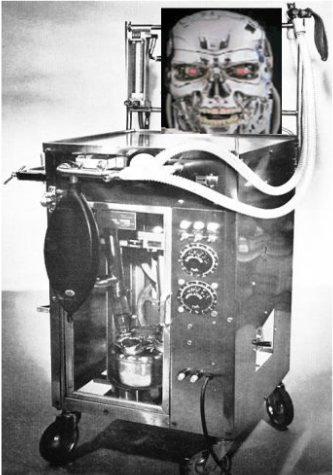
Clinicians may understandably have concerns about the impact of AI in medicine. While AI has the potential to revolutionize healthcare by improving diagnostics, treatment plans, and patient outcomes, it is unlikely to completely replace clinicians “in the near future”. Instead, AI is more likely to augment their skills and support their decision-making processes.
Artificial Intelligence (AI) can be applied during mechanical ventilation to improve patient outcomes and reduce healthcare costs. AI algorithms can be used to analyze patient data to dynamically adjust ventilator settings and predict patient needs. This allows for more precise control of ventilation, reducing the risk of patient harm and improving treatment efficiency. Additionally, AI can assist in detecting and diagnosing respiratory problems, such as VAP, VILI earlier and more accurately. AI in mechanical ventilation is a rapidly growing field with the potential to significantly impact patient care.
The future of AI in mechanical ventilation looks promising, with increasing potential for further advancements and wider adoption in clinical practice. Here are a few areas where AI is expected to make a significant impact in the future:
– Predictive analytics: AI algorithms will become more sophisticated and able to provide real-time predictions of patient needs, allowing for more proactive and personalized treatment.
– Automated decision making: AI-powered systems will increasingly be able to make automated decisions, such as adjusting ventilator settings, without human intervention, thus reducing the risk of human error.
– Improved patient outcomes: As AI becomes more widely used in mechanical ventilation, it is expected to lead to improved patient outcomes through more precise and efficient treatment.
– Cost savings: The use of AI in mechanical ventilation is expected to lead to cost savings for healthcare organizations by reducing the need for manual intervention and reducing the risk of patient harm.
– Overall, the future of AI in mechanical ventilation is exciting, and it is likely that we will see significant advancements and improvements in patient care in the coming years.
We need to be vigilant assessing, monitoring and learning the impact and the hypothetical benefits or harms of AI during mechanical ventilation in the ICU and in health care in general.
(This blog is written with some assistance from ChatGPT/Bard)


Q: Are modes like intelevent ASV, PRVC, PAV, a type of preemptive AI?
Not really, intelligent modes like ASV, InteliVent ASV are step forward from conventional modes but not really AI controlled